- Yes
- No
- Tech tree
- Premium
- Event (Squadron, Battle Pass, etc.)
- I do not want it
Hello !
I’d like to suggest the addition of a very notable and peculiar Soviet missile tank. You’ve likely already seen it but here’s a more extensive write-up on the tank. This suggestion will very much be subjet to change as I’ll likely add more information over the next months. So, here it is, the early variant of the 282, also known as 282T.

History
Spoiler
Work on “Topic N°4” began at the LKZ KB on July 11th, 1957. This “topic” called for the development of a brand new missile tank that would feature 2 fully stabilized rocket-launching turrets as well as the Salamandra ATGM that was being developed by the NII-48 and NII-648. The tank was meant to have a p/w ratio of at least 20 and should reach speeds of not less than 55 km/h. As for the armor, it should be impervious to 122 mm AP shells with a terminal velocity of 1000 m/s in a 60° frontal arc.
This tank was assigned the index 282 on August 3, 1957 and would be developed under the leader of N. M. Chistyakov.
The first discussions regarding the layout of this new tank came one month later, on September 3. Then, it was decided to develop two solutions : a tank armed with ATGMs named 282U (U for “управление”, “guided”) and one with unguided rockets named 282T (T for “турбо”, “turbo”).

By November, the layout of the tank was finalized. The tank would feature 2 crew members at the front, followed by the engine compartment with ammunition on the sides. The armament would be hidden inside the tank until it had to fire, two turrets then popping out for 1 second before going back down to reload.
While work on the tank itself was going smoothly, NII-48 was slow with the development of the Salamandra ATGM and, by February 1958, had only completed preliminary studies on the missile.
By May, most of the work was done but the NIIs working on the missile were still not able to provide detailed documents due to a lack of communication between the NII-48 working on the missile structure and NII-648 working on the control guidance.
As such, most of LKZ’s work would then focused on the rocket launchers.

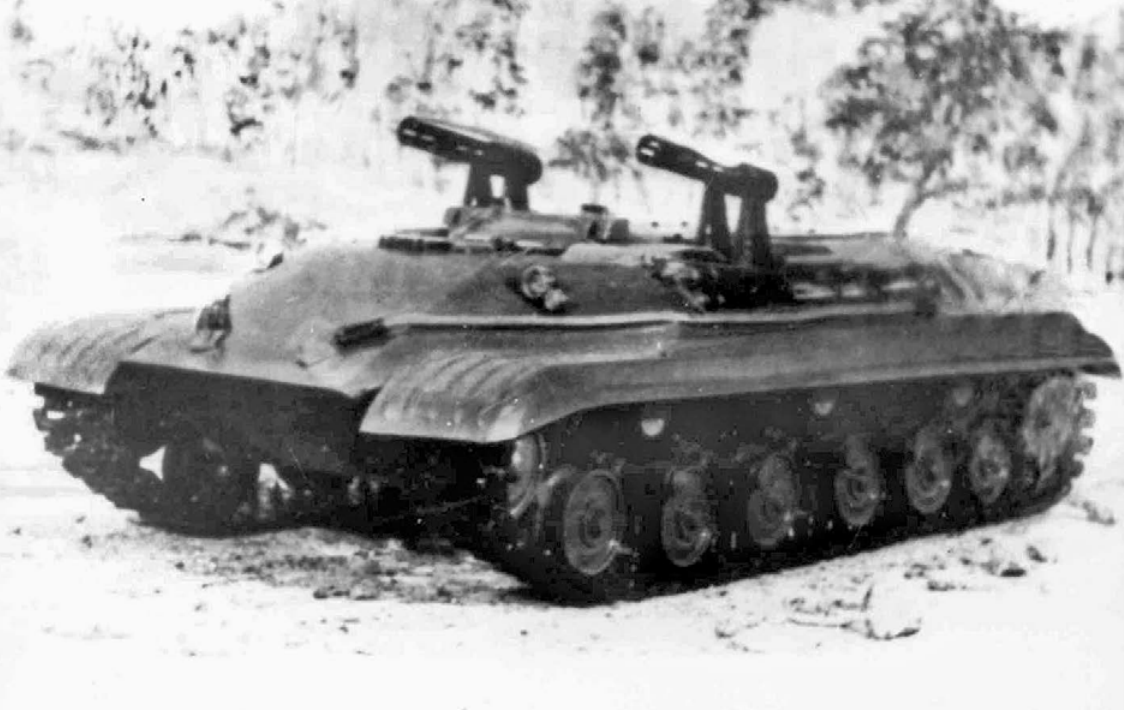
Further work was conducted on the turrets housing rocket launchers firing either the TRS-132 or the TRS-152 shells. Trials showed that the shells had a satisfactory accuracy at ranges of up to 1 km and that exceeding that distance in direct fire was easily doable. Further live trials were done on rotating turrets installed on a T-10M and a BTR-50.
By the end of 1958, the first prototype of the 282 would be assembled.
In early 1959, LKZ began debugging the Topol system, which was the name given to the system that dealt with the loading, arming, firing and everything done remotely of the launchers.
As complex as it was, the Topol system still proved troublesome and trials of the 282 were delayed. In the spring of 1959, the 282 would eventually go through its first trials. During the following months, the tank would demonstrate its mobility and firepower to Soviet officials and engineers at various places.

However, on July 4, work on “Topic N°4” would be officially discontinued in favor of new requirements asking for the development of a heavy tank armed with the Lotos ATGM. Nevertheless, LKZ engineers would keep working on the 282 on their own initiative, wondering if they could install ATGMs previously developed.
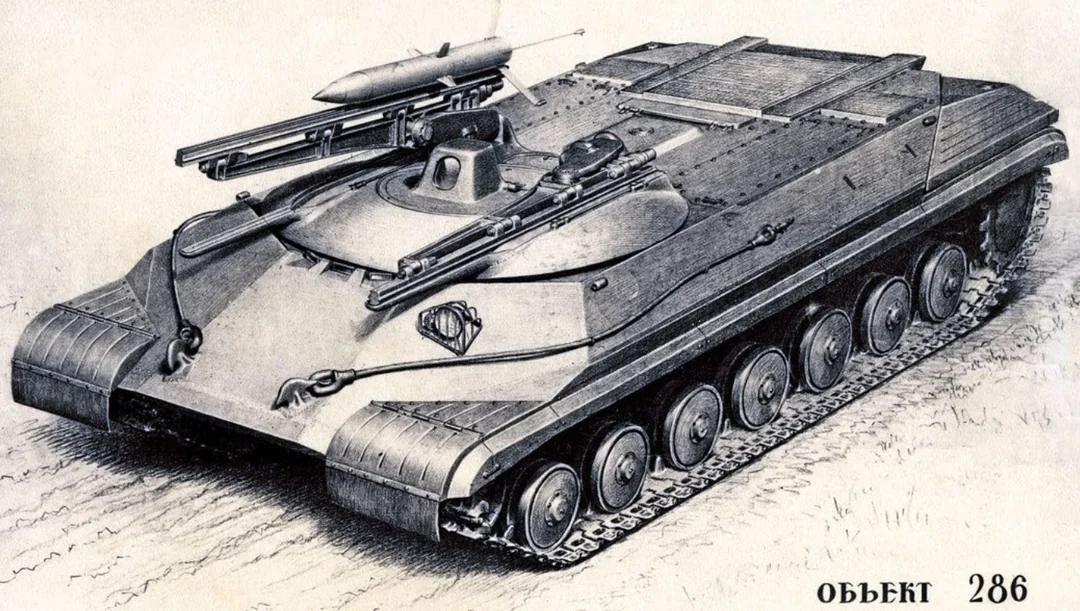
The GKSMOT authorized LKZ to build a new vehicle on March 1st, 1960. This one would feature both a rocket launcher as well as an ATGM, either Falanga or Skorpion. It is also at that time that LKZ worked on the 282K, a tank featuring two rocket launchers and a rear-mounted ATGM. The existing 282 was then rearmed in late 1960 but that’s all for now !
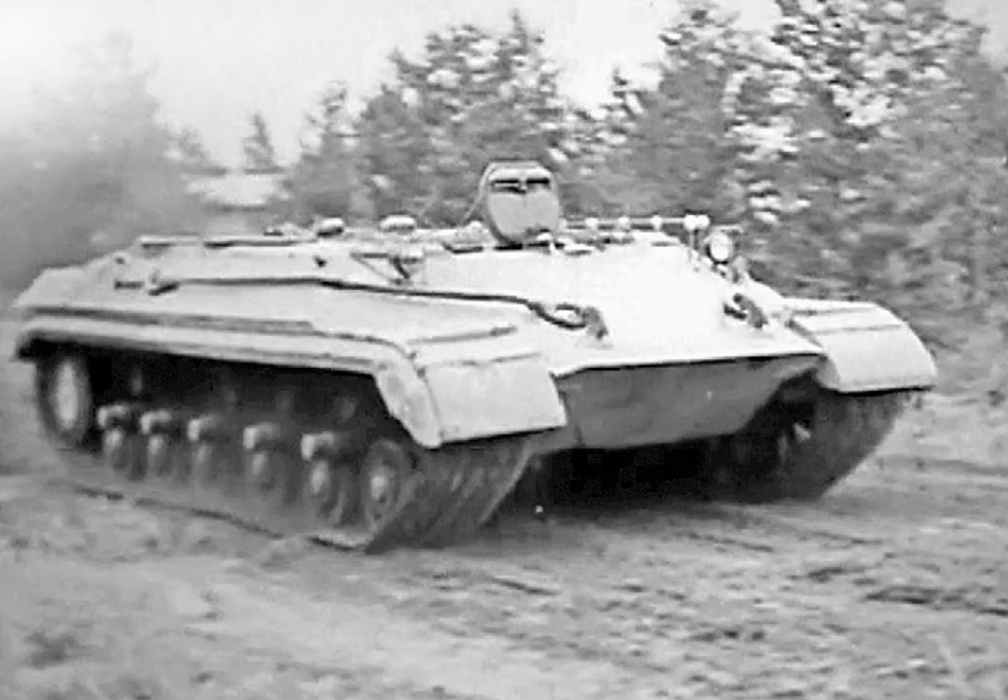



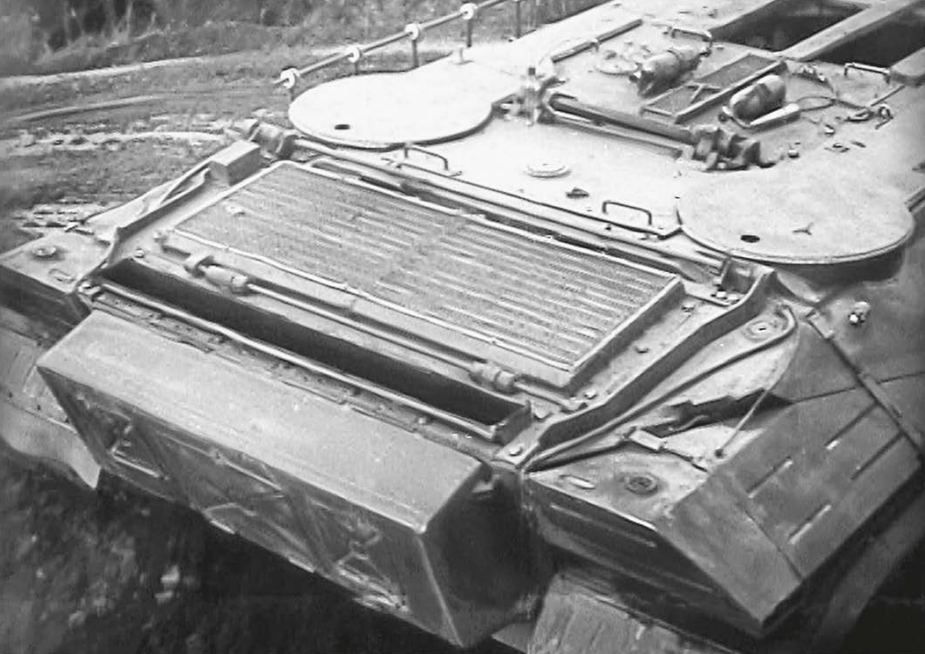

Specifications
Crew : 2
- Driver
- Gunner
Armament
- One fully stabilized 152 mm rocket launcher with TRS-152 HE rockets
- One fully stabilized 132 mm rocket launcher with TRS-132 HE rockets
- Sights : TPDS
- Elevation : -5°/+17°
- Elevation speed : V 4,5 °/s - H 18°/s
Spoiler

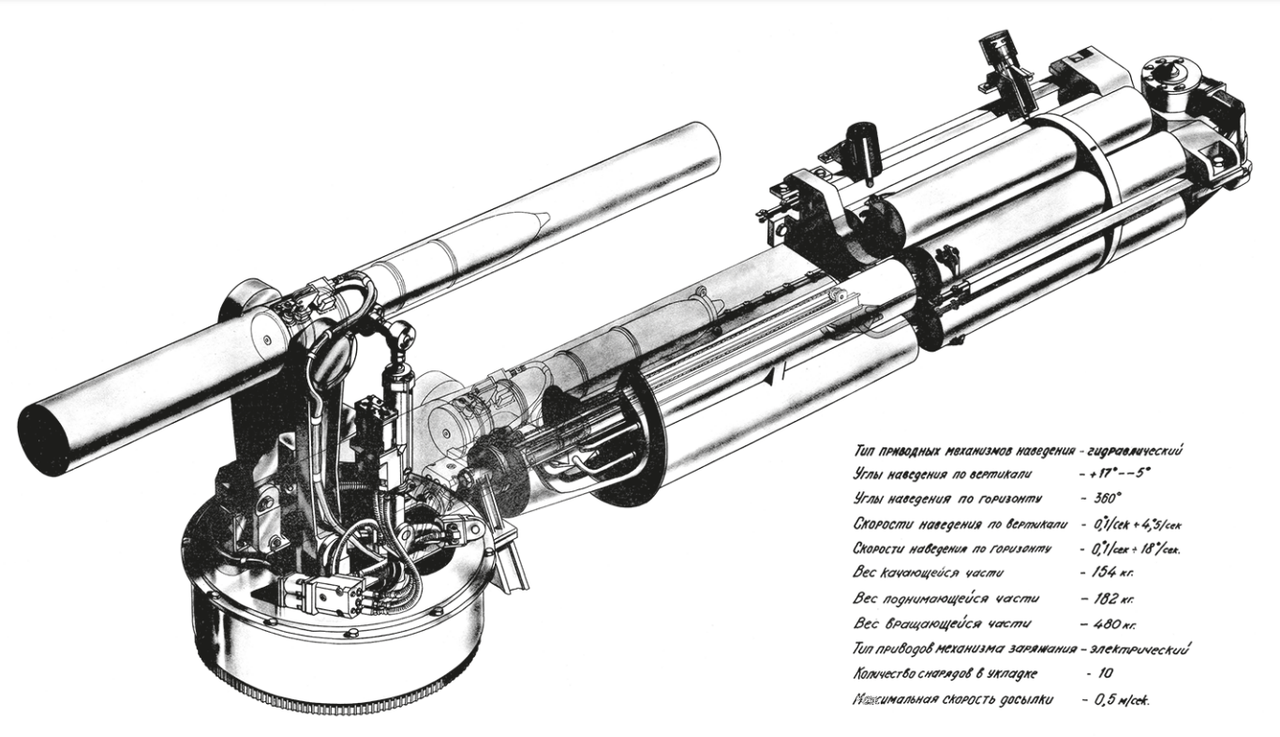
Dimensions
- Weight : 44 t
- Length : < 7.40 m
- Width : ~ 3.56 m
- Height : ~ 2 m
Mobility
- Engine : V-12F (1000 hp)
- Top speed : 55 km/h / -10 km/h
- Transmission : 4 forward / 1 reverse
Armor
The 3 front plates were made of 150 mm thick RHA angled at an angle of 64° from the vertical.
The lower side featured 60 mm of armor starting at an angle of 50° from the vertical to 73° where it meets the upper side, which is 150 mm thick at 50°.
As you can see, the tank featured 30 mm thick steel plates to separate the “outer” parts from the inside compartments.
Spoiler
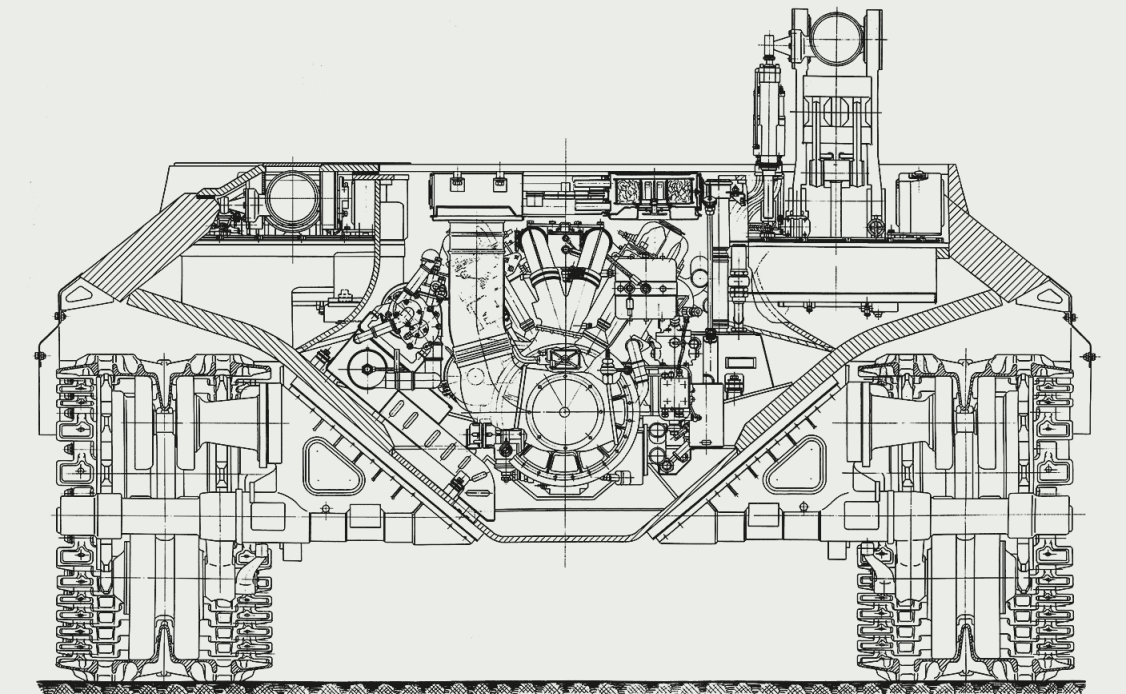
Sources
- Техника и вооружение, n° 11/21
- Техника и вооружение, n° 01/22
- Техника и вооружение, n° 07/25
- Отечественные бронированные машины 1945-1965 гг. Часть I
- Ракеты вместо мега-пушки: yuripasholok — LiveJournal
